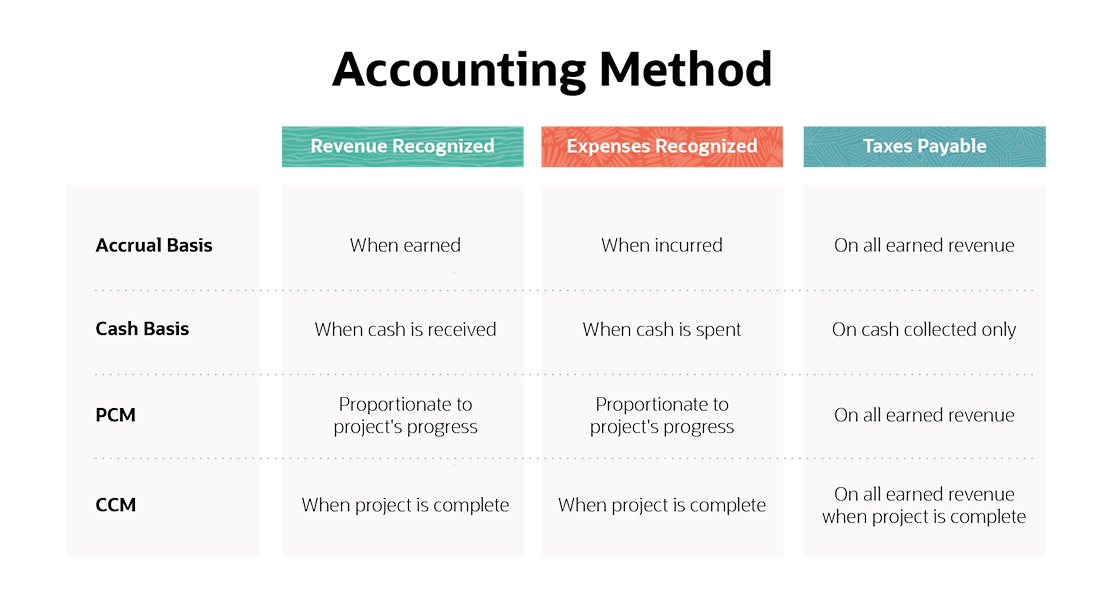Recognizing the Relevance of Building And Construction Accountancy for Effective Task Monitoring

Role of Building Accountancy
Building accounting acts as the backbone of economic management in the building industry, ensuring that jobs are completed within spending plan and economic objectives are fulfilled. construction accounting. This specialized audit method addresses the one-of-a-kind difficulties dealt with in building jobs, including varying job periods, rising and fall expenses, and multiple stakeholders
One of the key roles of construction accountancy is to give exact cost estimation and monitoring throughout the job lifecycle. This facilitates informed decision-making, allowing task managers to readjust sources and timelines efficiently. Furthermore, construction bookkeeping boosts money flow administration by keeping an eye on accounts receivable and payable, hence guaranteeing that funds are offered for timely repayments to subcontractors and distributors.
In addition, construction accountancy help in compliance with industry laws and coverage demands. It outfits job supervisors with the essential economic information to prepare in-depth financial statements, which are important for audits and economic reviews. By keeping clear documents, building accountancy cultivates transparency and responsibility, essential elements in developing depend on among stakeholders. Ultimately, the role of construction bookkeeping expands beyond mere financial monitoring; it is indispensable to critical preparation and functional performance, driving the success of construction tasks in a competitive landscape.
Trick Components of Building Accounting

Budgeting establishes a financial structure that overviews task implementation, permitting managers to assign resources successfully and anticipate potential economic difficulties. Exact expense tracking is vital for tracking expenditures in real-time, helping to recognize variations in between forecasted and real costs. This makes it possible for timely modifications to maintain the job on spending plan.
Furthermore, economic reporting supplies stakeholders with a clear photo of the project's financial health. Normal reports, such as revenue and loss declarations and cash flow analyses, facilitate notified decision-making and improve openness amongst all parties entailed.
Additionally, conformity with market policies and audit criteria is critical. This makes sure that economic practices are not just effective however additionally lawful, guarding the company against legal repercussions. By integrating these crucial elements, construction bookkeeping cultivates a structured technique to handling funds, inevitably contributing to the successful completion of construction jobs.
Benefits for Project Supervisors
Leveraging efficient building and construction audit techniques provides task supervisors with a wide variety of benefits that improve both operational effectiveness and financial oversight. One considerable advantage is boosted budget management. Precise monitoring of revenues and expenditures permits job supervisors to check monetary efficiency in genuine time, making sure jobs remain within spending plan and promoting timely changes when required.
In addition, building and construction accountancy improves capital monitoring, allowing job supervisors to optimize and prepare for monetary requirements source allocation. By understanding cash inflows and outflows, they can much better take care of payments to providers, employees, and subcontractors, consequently avoiding costly delays.
In addition, robust audit systems give comprehensive reporting capacities. Task supervisors can create records that provide insights into job success, price variances, and resource usage. This data-driven strategy fosters educated decision-making, allowing managers to recognize potential problems proactively and implement restorative measures.
Lastly, adherence to building and construction accounting standards guarantees conformity with regulative and legal requirements, reducing the risk of conflicts or charges. Overall, effective building audit furnishes job managers with the tools needed to drive job success, boost stakeholder confidence, and advertise long-term organizational development.
Common Difficulties in Building And Construction Audit
Several task managers run into substantial obstacles in building and construction accountancy that can hinder task success. Among the primary difficulties is the intricacy of tracking numerous work websites, each with unique budgets, timelines, and resource allocations. This needs thorough attention to detail, which can be overwhelming without a robust accountancy system in position.
Furthermore, rising and fall product costs and labor prices can complicate spending plan administration, making exact forecasting difficult. Job supervisors often battle to integrate these prices with actual expenditures, causing prospective monetary inconsistencies.
Furthermore, construction accountancy entails conformity with various policies, including tax obligation obligations and labor laws. Navigating these rules can be challenging, specifically for supervisors that may not have a solid accountancy history.
Another substantial challenge is managing capital, which is essential in the building market. Delays in invoicing, settlements from clients, or unexpected project adjustments can produce cash circulation shortages, jeopardizing the job's progression.
Finally, effective communication in between job managers, accounting professionals, and field teams is essential. Misconceptions can lead to inaccurate economic coverage, further making complex job management efforts. Addressing these challenges proactively is vital for successful building and construction bookkeeping.

Finest Practices for Effective Bookkeeping
While navigating the intricacies of building find more audit can be challenging, adopting finest practices can dramatically improve monetary management and project success. One essential method is keeping timely and precise documents. Implementing durable bookkeeping software tailored to building and construction jobs can improve data entry, invoicing, and websites reporting, decreasing mistakes and conserving time.
Furthermore, developing a clear spending plan and normal monitoring versus this budget plan are critical. Using a system of regular financial reviews enables task managers to determine variances early, promoting timely decision-making. It is additionally important to separate project prices right into indirect and direct categories, making it possible for clearer insights into productivity.
Another best practice includes promoting open interaction amongst all stakeholders. Regular updates and joint discussions regarding economic condition can make sure everybody is straightened and informed. Training team in construction-specific accountancy concepts further enhances proficiency and accuracy.
Finally, ensuring conformity with appropriate accountancy criteria and policies is non-negotiable. Routine audits and internal testimonials add to openness and accountability, constructing trust with stakeholders and clients. By concentrating on these best practices, construction firms can maximize their accounting procedures, eventually driving project success and financial security.
Final Thought
To conclude, building bookkeeping plays an essential function in guaranteeing effective job monitoring by assisting in precise monetary oversight and boosting decision-making. By integrating crucial components such as expense evaluation, capital management, and conformity, job supervisors can navigate typical obstacles and utilize finest methods for reliable accounting. Inevitably, a durable building accounting structure not only safeguards budget stability yet also adds to the overall economic health of building and construction her comment is here tasks, promoting sustainable success within the market.
By incorporating these key elements, building accounting cultivates an organized technique to taking care of economic resources, eventually adding to the successful completion of building projects.
Exact tracking of revenues and expenses allows job managers to check financial efficiency in real time, ensuring projects continue to be within budget plan and facilitating prompt adjustments when necessary.
Project supervisors can create reports that supply understandings into task earnings, cost differences, and resource usage.Lots of project supervisors come across significant challenges in building and construction accountancy that can hinder task success. construction accounting. Ultimately, a robust building bookkeeping framework not just safeguards budget integrity however also adds to the general monetary health of construction tasks, fostering sustainable success within the sector